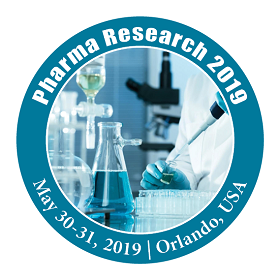Ermias Mergia Terefe
United States International University-Africa, Kenya
Title: In-vivo antimalarial efficacy of methanolic leaf extract of Verbascum sinaiticum in mice infected with Plasmodium berghei ANKA strain
Biography
Biography: Ermias Mergia Terefe
Abstract
Background: Spread and emergence of antimalarial drug resistance is the major challenge that endangers all the recent gains in malaria control. Medicinal plants are the key source of new effective antimalarials. Verbascum sinaiticum is commonly used the traditional medicinal plant in many parts of Africa including Ethiopia for treatment of malaria.
Methods: This study attempted to evaluate the in-vivo antimalarial activity of 80% methanol leaf extract of the plant in mice infected with Plasmodium berghei ANKA strain. To this effect, various doses (100, 200, 400mg/kg) of the extract were evaluated for the antimalarial effect using the fourday suppressive, curative and prophylactic tests. Parameters, including percent parasitemia, survival time, body weight, body temperature and packed cell volume (PCV) were determined using standard procedures.
Results: A significant (p<0.001) maximum parasite suppression of 51.34% was observed with 400mg/kg of the extract, in early infection. On the other hand, a significant parasite suppression was observed by the extract in the curative test with 400mg/kg (40.71%, p<0.001) being the highest. In the prophylactic test, 100, 200, and 400mg/kg of the extract produced 23.31%, 39.90% and 61.81% parasite suppression, respectively. In addition, the standard produced significant parasitemia suppression in all tests. In general, the extract has shown considerable invivo antimalarial properties with outstanding prophylactic activity. The phytochemical screening of the extract showed the presence of alkaloids, steroids, tannins, phenols, and flavonoids. The findings suggest that V. sinaiticum contain active phytochemicals that could potentially be a lead compound in the search for new antimalarials.

